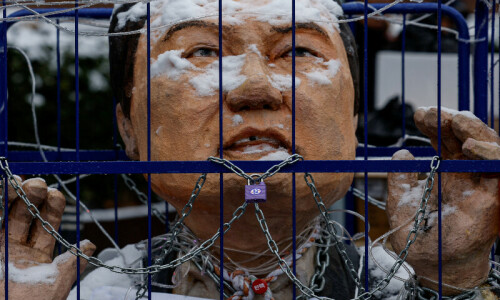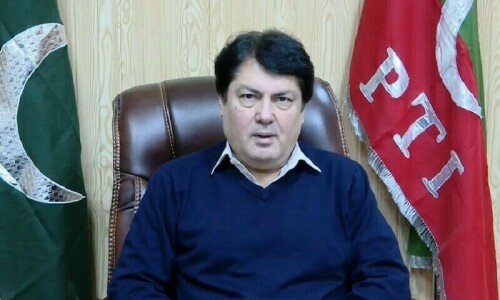- Sindh High Court constitutional bench lifts restraining order on hiring
- Petitioners challenge govt’s decision to reduce passing marks to 33pc only for candidates of “hard areas”
KARACHI: A day after the constitutional benches were formed in the Sindh High Court, a three-member bench on Wednesday lifted the restraining order, granted earlier by a division bench, on recruitment of government schoolteachers in the province.
The constitutional bench, headed by Justice Muhammad Karim Khan Agha, allowed the recruitment of primary school teachers (PST) and junior elementary school teachers (JEST) in Sindh after the petitioners submitted “no objection” to vacating the stay order.
“Apparently, the stay is operating in these matters since last 18 months. Danish Rashid Khan, advocate & associate of M.M Aqil Awan, learned counsel for the petitioners has no objection to the vacation of the stay. Accordingly, the stay is vacated,” the order said.
After the order, the government is allowed to recruit primary and junior teachers in Sindh.
Earlier, the SHC had issued a stay order after hearing various petitions, halting the recruitment process and restricting the government from hiring teachers in the province.
The counsel for the Sindh government argued that the stay on recruiting teachers had paralysed the education system, affecting the quality of education and the functioning of government schools.
The government pleaded for the earlier order to be overturned and sought permission to recruit teachers to improve education standards in the province.
The petitioners had challenged the government’s recruitment policy, which had been approved by the cabinet.
Under the policy, the condition of securing 45 per cent marks in all subjects was waived.
Instead, a 50pc passing criterion was introduced for minorities and girls, while a reduced threshold of 33pc was set for candidates from “hard areas” — specific union councils in 31 talukas across 13 districts of Sindh — and differently-abled persons to qualify for the test.
They contended that the new policy had created a distinction between hard and soft areas, allowing candidates from certain regions to be selected with lower passing marks.
The petitioners argued for a unified policy across the province to ensure fairness and equal opportunities for all candidates.
They claimed that they had also secured between 33 and 39pc marks but, since they did not belong to the designated hard areas, their scores were deemed below the minimum threshold.
It is said to be the first order issued by the constitutional bench of the SHC after its formation.
Published in Dawn, November 28th, 2024












































Dear visitor, the comments section is undergoing an overhaul and will return soon.